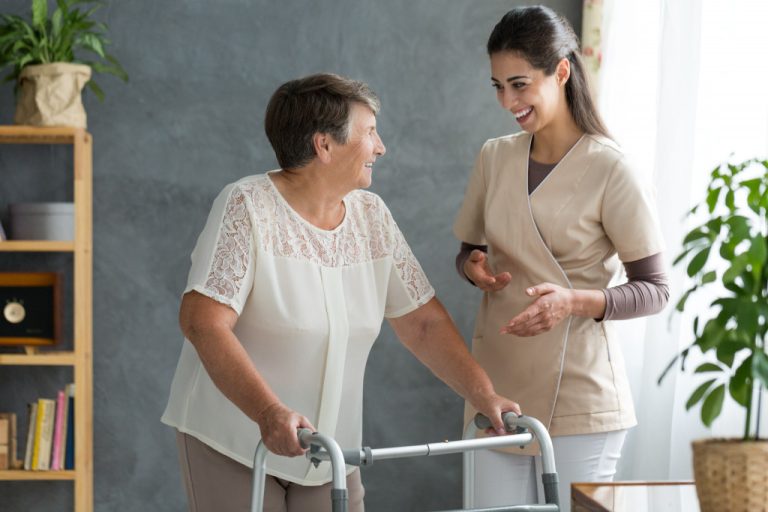As people age, they are more likely to experience health complications. This is because the body starts to wear down over time, and it becomes more difficult to fight off illness and infections. There are a number of common health complications that affect the elderly, and it is important to know how to deal with them properly.
Luckily, options like a tailored healthcare solution can help make dealing with health complications easier. This is a health plan specifically designed for seniors, and it can help them get the care they need to stay healthy.
There are other things that can be done to help prevent health complications from occurring. Some of these include getting regular checkups, eating a healthy diet, and exercising regularly. No matter what intervention you choose, it is important to help elderly individuals achieve better health outcomes, so they can enjoy their lives.
Helping the Elderly Live Healthy Lives
When it comes to health complications, the elderly are at a higher risk for a number of different issues. Here are eight of the most common health complications that affect seniors:
1. Heart Disease
Heart disease is the leading cause of death for adults in the United States, and it is especially common among seniors. There are a number of different risk factors for heart disease, including high blood pressure, high cholesterol, diabetes, and smoking.
If you have a loved one who is at risk for heart disease, make sure to help them stay on track with their health by encouraging them to eat healthily, exercise regularly, and avoid smoking. This way, you can help reduce their risk of developing heart disease.
2. Stroke
A stroke is another common health complication that affects seniors. A stroke occurs when the blood supply to the brain is interrupted, causing cells in the brain to die. There are a number of different risk factors for strokes, including high blood pressure, diabetes, and high cholesterol.
If you notice that your loved one is having trouble speaking, moving their limbs, or seeing, it’s important to get them medical help right away. This is because a stroke can cause long-term damage to the brain if it’s not treated quickly. If you notice any of these symptoms, call 911 immediately.
3. Urinary Tract Infection
Urinary tract infections are another common health complication that can affect seniors. UTIs occur when bacteria enter the urinary tract and cause an infection. Symptoms of UTI include pain or burning when urinating, frequent urges to urinate, and bloody or cloudy urine.
If you think your loved one has UTI, take them to the doctor for an evaluation. UTIs can be treated with antibiotics if they are caught early enough. However, if left untreated, they can cause serious health complications, such as sepsis.

4. Dementia
Dementia is a progressive brain disorder that affects cognitive function. Symptoms of dementia include memory loss, confusion, and changes in mood or behavior.
Dementia can be very challenging for caregivers to deal with. It is important to provide as much support and assistance as possible to your loved one who is living with dementia. If you are feeling overwhelmed, don’t hesitate to seek help from a professional caregiver or support group. This way, you will be able to avoid burnout and provide the best possible care for your loved one.
5. Depression
Depression is a common mental health condition that can affect anyone, including elderly adults. Symptoms of depression include sadness, loss of interest in activities once enjoyed, feelings of worthlessness or guilt, changes in sleep habits, and thoughts of suicide.
If you notice that your elderly loved one is experiencing any of these symptoms, it is important to seek help from a health care professional right away. Treatment for depression can include medication, therapy, and lifestyle changes.
6. Diabetes
Diabetes is another common health condition that can affect elderly adults. Diabetes is a disease that occurs when the body does not produce enough insulin or when the insulin produced does not work properly. This can cause blood sugar levels to become too high.
Symptoms of diabetes include increased thirst and urination, fatigue, blurred vision, and weight loss. If you notice any of these symptoms, it is important to see a doctor right away. Treatment for diabetes includes medication, diet changes, and exercise.
7. Arthritis
Arthritis is also a common health condition that affects the elderly. Arthritis is a disorder that causes inflammation and pain in the joints.
Symptoms of arthritis include joint pain, stiffness, swelling, and redness. Treatment for arthritis includes medication, surgery, physical therapy, and lifestyle changes.
8. Osteoporosis
Osteoporosis is a condition wherein the bones become weak and brittle. This can lead to fractures, especially in the hip, spine, and wrist. Symptoms of osteoporosis include back pain, loss of height, and a curvature of the spine. Treatment for osteoporosis can include medication, diet changes, and exercise.
It’s important for elderly individuals to do what they can to stay healthy and reduce their risk of health complications. This includes eating a balanced diet, getting regular exercise, and seeing a doctor for check-ups.
It’s also important to keep an eye on elderly loved ones and help them take care of themselves if necessary. If you’re concerned that your elderly loved one is not taking good care of themselves, you can speak to their doctor about it. This way, you can guarantee that the proper intervention will be given to them.











